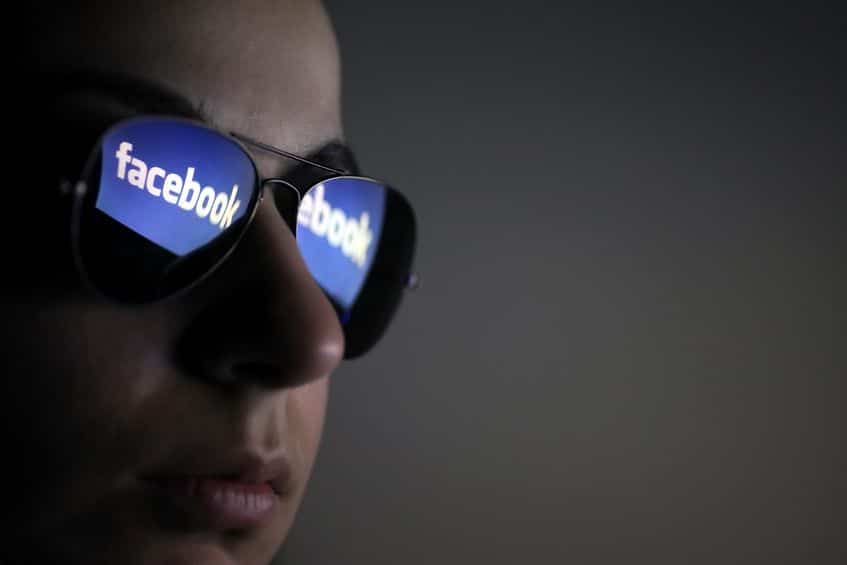 When a company like Facebook makes future trend predictions, you almost have to pay attention. After all, the company knows so much about us—our shopping habits, political inclinations, sexual preferences, hopes, dreams, and fears—that if the Zombie Apocalypse does arrive, it’s a toss-up whether Facebook or Google will learn about it first. That’s what makes Facebook IQ’s “20 Shifts for 2020” such a fascinating glimpse into how a company with data on over 2 billion consumers worldwide sees the world evolving. Here’s the TL;DR version for those of you too busy checking your News Feed to read it for yourself.
When a company like Facebook makes future trend predictions, you almost have to pay attention. After all, the company knows so much about us—our shopping habits, political inclinations, sexual preferences, hopes, dreams, and fears—that if the Zombie Apocalypse does arrive, it’s a toss-up whether Facebook or Google will learn about it first. That’s what makes Facebook IQ’s “20 Shifts for 2020” such a fascinating glimpse into how a company with data on over 2 billion consumers worldwide sees the world evolving. Here’s the TL;DR version for those of you too busy checking your News Feed to read it for yourself.
By Rick Ferguson
Facebook’s report, published as a series of articles over the course of 2017, divides its future trends into four broad themes. Here’s a look at each:
Blurring Boundaries. In its “people insights” report, Facebook predicts that the very nature of “identity” will change, with people “embracing more personalized, complex and fluid means of self-identifying. Millennials will “transform work as we know it,” while Baby Boomers live longer than previous generations, meaning that classic rock will continue to play over the PA in every restaurant, bar, and coffee shop for at least another decade. For marketers, Facebook’s prediction that consumers will enter a state of “continuous negotiation” with brands ought to give us pause. Money quote:
“With people’s relationships with businesses mediated by technology, as technology evolves, so too will the “contract” between people and brands. We will move into a new era of continuous negotiation, as technology enables new possibilities, control and advantages for both businesses and people. On the one hand, people will continually expect more from brands (e.g., better mobile experiences and customer service). And at the same time, people’s acceptance of surge pricing demonstrates a growing willingness to pay more for convenience when it’s perceived to be worth the time and effort saved.”
Multisensory multipliers. Facebook predicts a world increasingly driven by digital interactions, one in which “Video, VR and voice will unlock more immersive and intuitive interactions.” Information will take the form of short bursts delivered on mobile, with video predominating. Facebook also predicts that “People will increasingly expect to share (and share in) more multisensory, collective online experiences,” which I thought we had already tried with Second Life, but the prediction most likely refers to Facebook’s hopes for Facebook Live. Money quote #2:
“By 2020, over 75% of the world's mobile data traffic will be video. In Australia and Indonesia alike, over 70% of mobile phone internet users are expected to use a messaging app. And through the power of voice, nearly 1 in 3 web browsing sessions is predicted to take place without a screen.”
Mobile Service Economy. Facebook expects the drive to deliver frictionless commerce to continue, and to be centered on the mobile device: “The path to purchase will condense to a single, mobile moment, heightening expectations around personalization and immediacy,” the company says. Mobile commerce will rule, with frictionless experience delivery the key to success; personalization will also become critically important. In a nod to loyalty, Facebook predicts that sustainable customer relationships will be built around “subscription and automation.” Money quote #3:
“Old-fashioned brand love is not dead—in fact, we recently found that 37% of US people surveyed identified as brand loyal repeat purchasers. But people's wallets are opening to loyalty of a different kind. If convenience is king, then loyalty will be powered by the seamlessness of subscription and automation. In some cases, this will mean that people will be able to replenish products so easily (or automatically) that the ‘consideration’ stage could actually be removed from the consumer journey altogether.”
Mobile Command Center. And in case there’s any doubt about the power of mobile, Facebook predicts that “in both emerging and mature markets, mobile’s role at the center of the digital universe will only grow stronger.” Billions of consumers will rely on mobile devices as their sole means of getting online, and those who aren’t glued to their smart phones will be talking to the various smart appliances in their homes via the Internet of Things. Facebook also naturally predicts that a “small group of apps” will dominate mobile, and we may bet that Messenger will be one of them. Money quote #4:
“In the face of information overload, people continue to crave simplicity. And as the apps people use most often continue to expand their capabilities, it seems probable that a small set of core apps could become people’s one-stop shops (if they haven’t already).”
So there you have it: Facebook’s look into the future reveals that more people will use Facebook. Snarkiness aside, the 20 Shifts series is actually chock full of interesting facts and trends; you can read the entire series here.
Rick Ferguson is Editor in Chief of the Wise Marketer Group and a Certified Loyalty Marketing Professional (CLMP).


